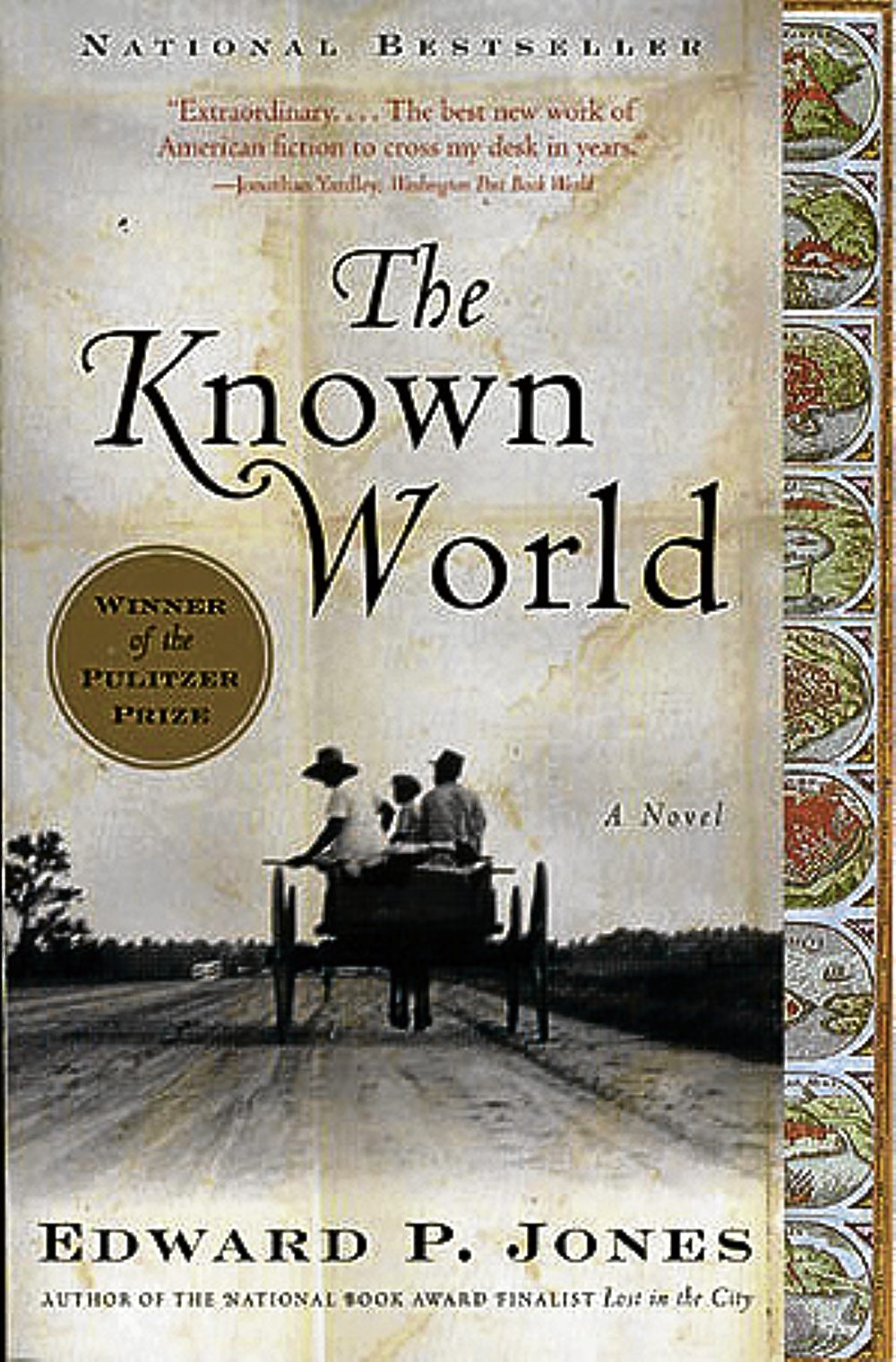The Known World by Edward P. Jones
 Well, I’ve done it now. I’ve finished every Edward P. Jones book ever written … and I see no signs that more are forthcoming anytime soon. Anyone out there who knows otherwise, please do share!
Well, I’ve done it now. I’ve finished every Edward P. Jones book ever written … and I see no signs that more are forthcoming anytime soon. Anyone out there who knows otherwise, please do share!
Not to play favorites, but among Jones’ three indelible titles, his single (thus far) novel gets the preferred spot. I’m definitely in collusion with others as it won the 2003 National Book Critics Circle Award, the 2004 Pulitzer Prize for Fiction, and the 2005 International IMPAC Dublin Literary Award (which, with its €100,000 prize, is one of the most generous in the world). With such lauded original text, the audible version – most expertly read by Kevin Free and oh so highly recommended – naturally won a 2004 Earphones Award, too.
World begins and ends with death, one peaceful, the others horrifically violent. In between the almost-400 pages (or 14+ hours stuck in the ears), the (very) nonlinear narrative falters once during Counsel Skiffington’s hallucinogenic wandering after he burns down his plantation. The rest is, indeed, history … of a not-so-well-known phenomenon of slave-owning African Americans in the South. Within the World‘s first five words, the “master” is dead: in July 1855, Henry Townsend, 31, leaves behind a wife … and a plantation of more than 50 acres which he owned, together with 33 human beings that were also his property. Henry himself was a former slave, whose freedom was bought by his parents when he was still a child, and yet whose allegiance and loyalty to his former owner, William Robbins, never wavers. Robbins, no less a complex character, is a white farmer who owns the largest plantation in fictional Manchester County, Virginia, who lives a double life – one with his white wife and daughter, the other with his slave mistress, and their two young children.
Jones’ storytelling jumps decades backwards and forwards, from before Henry’s birth, well into the next century with references to future historians working in the 1950s and even 1970s. Jones moves sometimes unpredictably between characters and experiences, between generations and social classes. He is not always patient, and doesn’t wait for the reader to make immediate connections, and yet he is partial to certain repetitions, including the reappearance of Tessie’s doll made by her father Elias which she will hold onto through her final hour at age 99, and the reunion of Minerva and her sister after 20 separated years marked by her sister’s reaction that begins “‘You done growed.'”
In spite of the movement in time, place, and people, the pieces merge together to create a Known World that haunts, shocks, and long-after resonates with the fates of a disparate community. Henry’s death sets in motion inevitable changes and unexpected events in the lives of his parents, his wife, his in-laws, his friends, his former master, and especially his slaves, as the intricate mosaic that once defined Henry’s existence shifts, transforms, and disappears.
Readers: Adult
Published: 2003
Sorry, the comment form is closed at this time.

Discussion